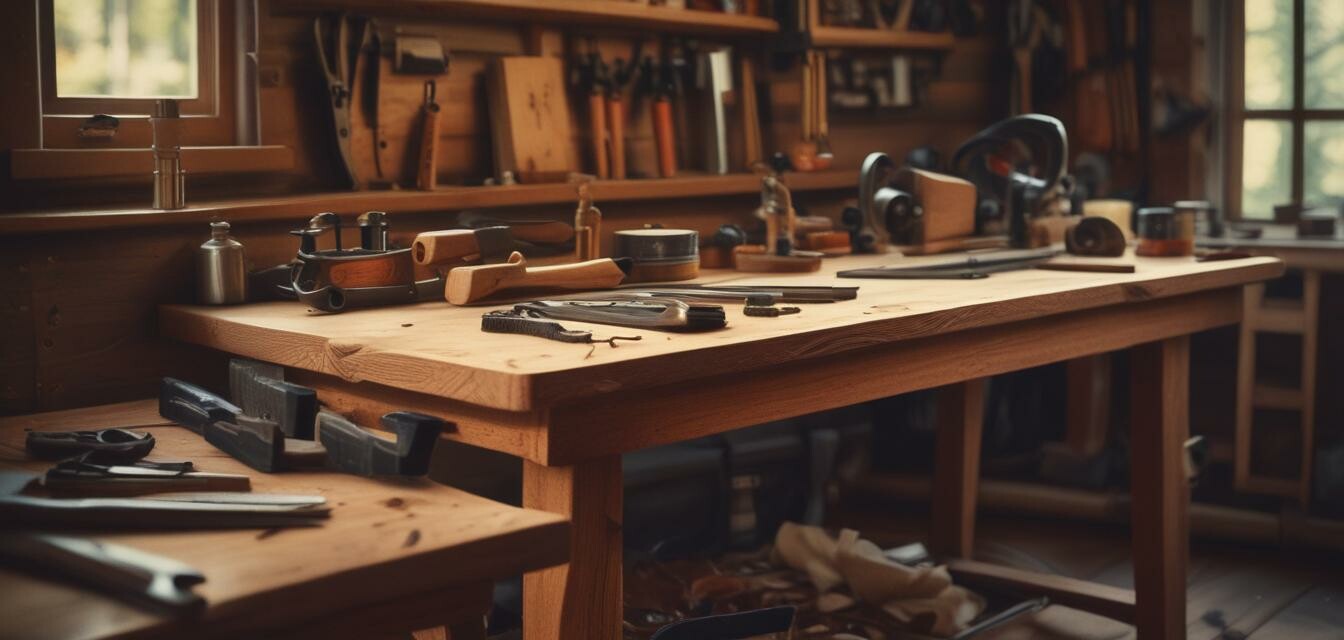
Essential Tools for Sustainable Woodworking
- Choosing the right tools is crucial for promoting sustainable practices in woodworking.
- Hand tools often have a lower environmental impact compared to power tools.
- Investing in high-quality, sustainable materials enhances the longevity of your projects.
- Proper maintenance of tools not only extends their life but also aids in sustainable practices.
Woodworking is an art that brings beauty, functionality, and sustainability into our homes. As woodworkers, it is our responsibility to create pieces that are not only aesthetically pleasing but also environmentally friendly. This article explores the essential tools that every sustainable woodworker should have in their arsenal, ensuring projects are eco-friendly while preserving the beauty of natural wood.
Why Sustainable Woodworking Matters
Sustainable woodworking practices focus on the responsible sourcing of materials, environmentally friendly techniques, and minimizing waste. Adopting these principles helps in protecting our forests and ecosystems for future generations. By using the right tools, woodworkers can significantly reduce their environmental footprint.
Essential Tools for Sustainable Woodworking
| Tool | Description | Eco-Friendly Benefit |
|---|---|---|
| Hand Saw | A woodworking saw that is operated by hand. | Uses no electricity, promoting energy conservation. |
| Chisels | Hand tools used for carving and shaping wood. | High precision allows for less waste and better use of materials. |
| Woodworking Plane | A tool used to smooth or shape wood. | Encourages recycling of imperfect pieces by salvaging wood dimensions. |
| Sustainable Clamps | Tools that hold wood pieces in place while working. | Invest in recycled materials or sustainably sourced products. |
| Wood Glue (Eco-Friendly) | An adhesive for joining wood pieces. | Opt for water-based, non-toxic options to minimize harmful emissions. |
Investing in Quality Tools
When it comes to sustainable woodworking, quality trumps quantity. Investing in well-made, durable tools is essential. Here are some reasons why quality tools are advantageous:
- Longevity: Quality tools last longer, reducing the need for replacements.
- Performance: Better performance leads to less waste during projects.
- Satisfaction: Using well-crafted tools enhances the woodworking experience.
Maintaining Your Tools for Sustainability
Proper maintenance of your woodworking tools is crucial for their durability and efficiency. Here are some maintenance tips:
- Regularly clean tools to remove wood residue and prevent rust.
- Sharpen blades and chisels to decrease strain and enhance performance.
- Store tools in a dry place to prevent moisture damage.
- Perform routine inspections for any damages that may worsen if left unattended.
Eco-Friendly Wood Finishing Techniques
Finishing your projects with eco-friendly methods enhances sustainability. Explore some of these techniques:
- Natural Oils: Use tung oil or linseed oil for a rich, protective finish.
- Beeswax: A sustainable option for sealing and protecting wood.
- Water-Based Finishes: Low in VOCs, water-based products are safer for the environment.
Where to Find Sustainable Materials
In addition to essential tools, sourcing sustainable materials is crucial for eco-friendly projects. Consider these options:
- Reclaimed Wood: Salvaged from old structures, it helps reduce deforestation.
- Sustainable Lumber: Sourced from responsibly managed forests.
- Bamboo: A fast-growing, renewable resource with strong properties.
Pros
- Eco-friendly practices support environmental conservation.
- Hand tools offer greater control and precision.
- Sustainable materials can enhance the beauty of projects.
Cons
- Quality tools can be expensive to start with.
- Hand tools require more physical effort compared to power tools.
Conclusion
Sustainable woodworking is not just a trend; it is a necessary approach to preserving our planet. By choosing the right tools, materials, and practices, woodworkers can create beautiful pieces that harmonize with nature. For more insights on sustainable practices in woodworking, check out our Sustainable Practices category.